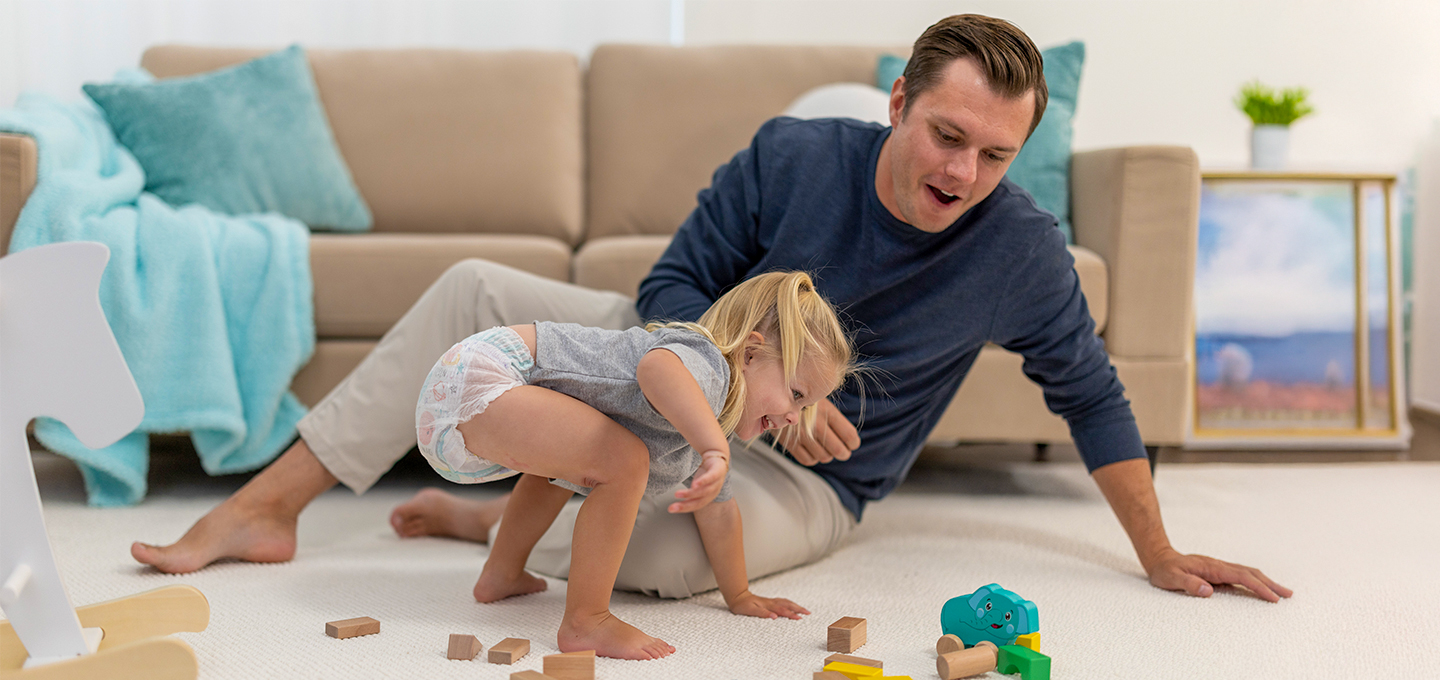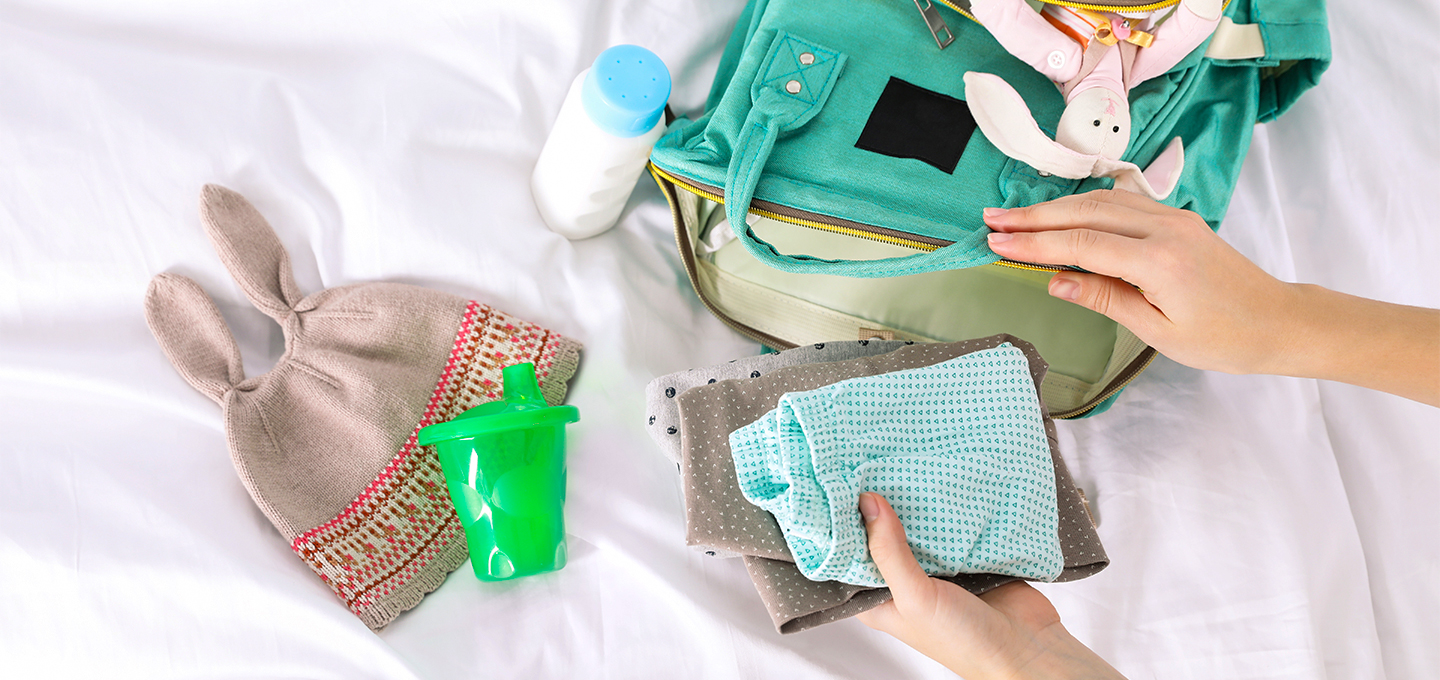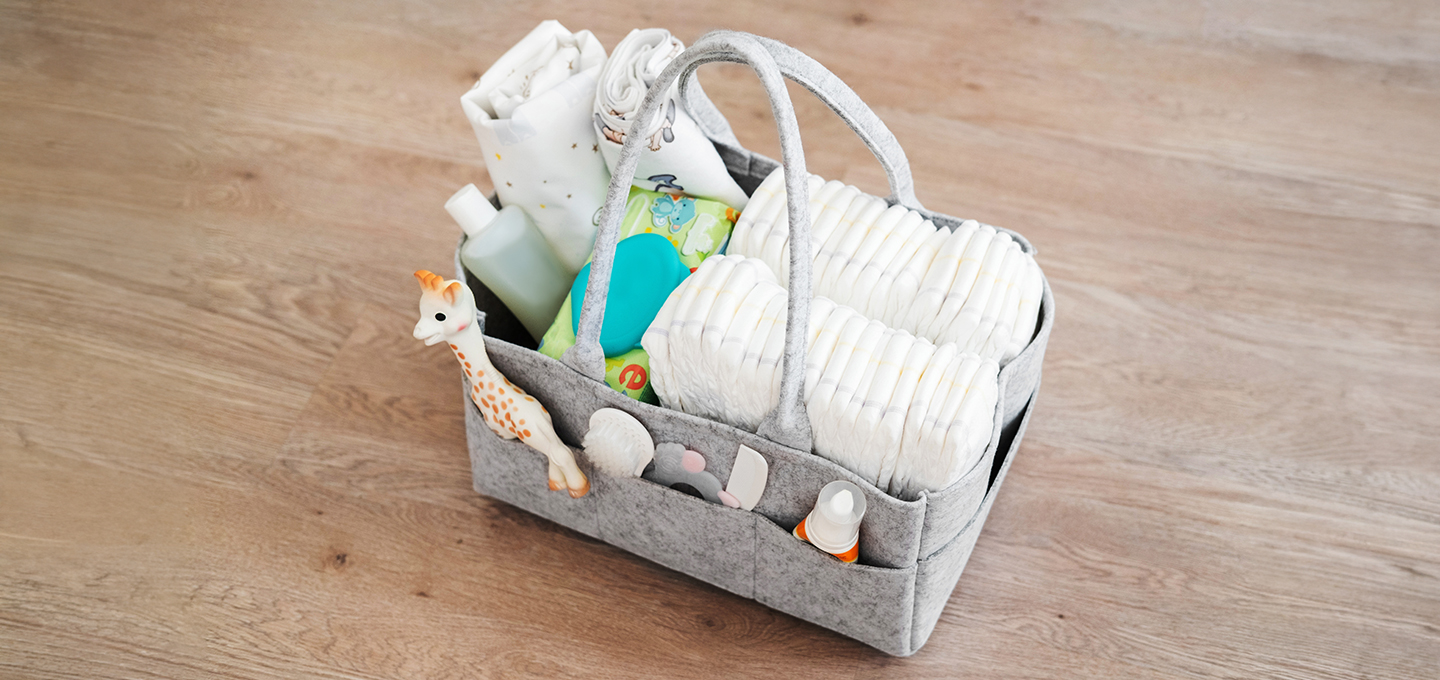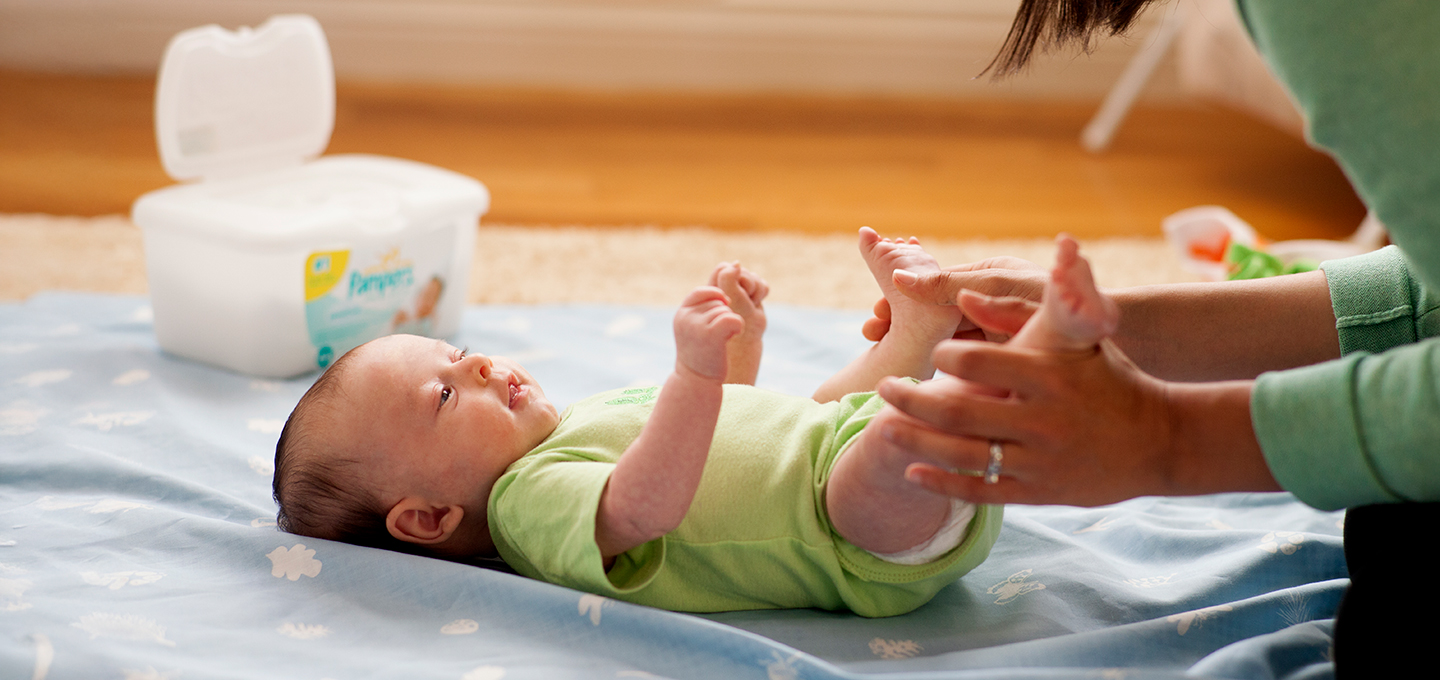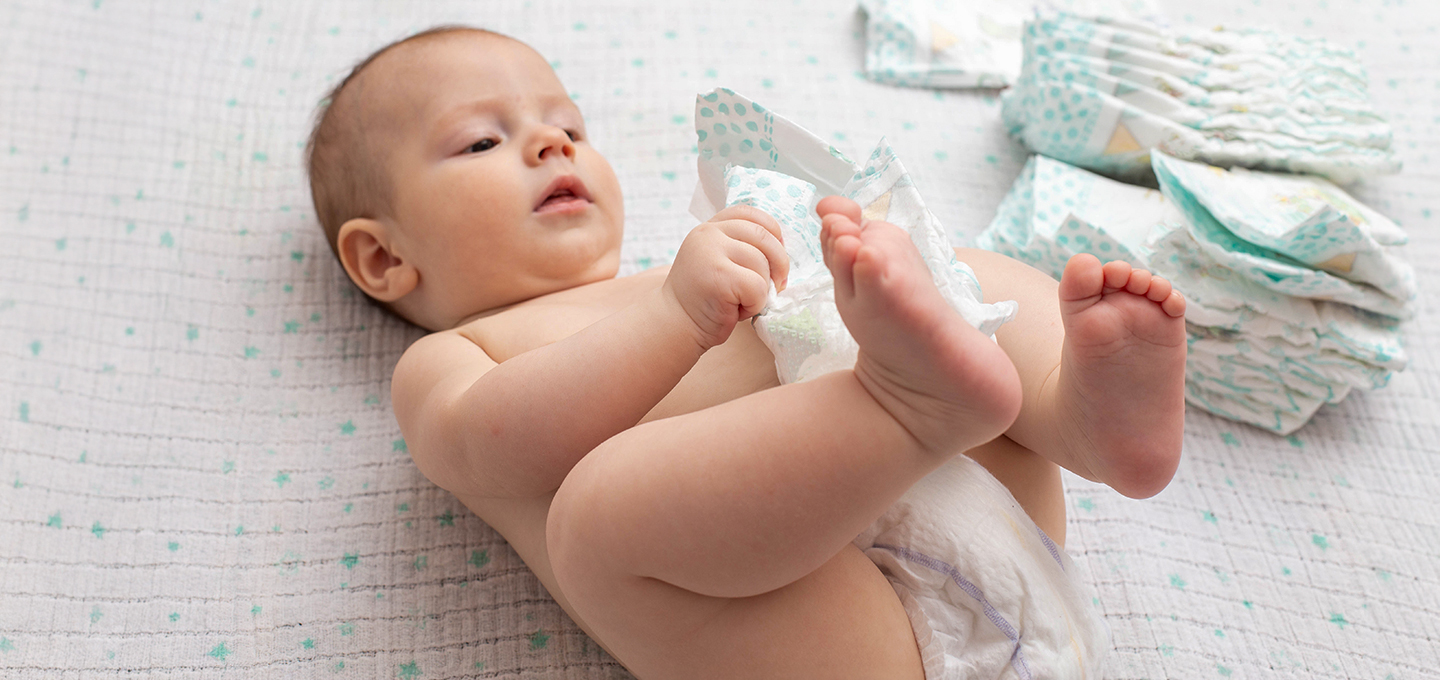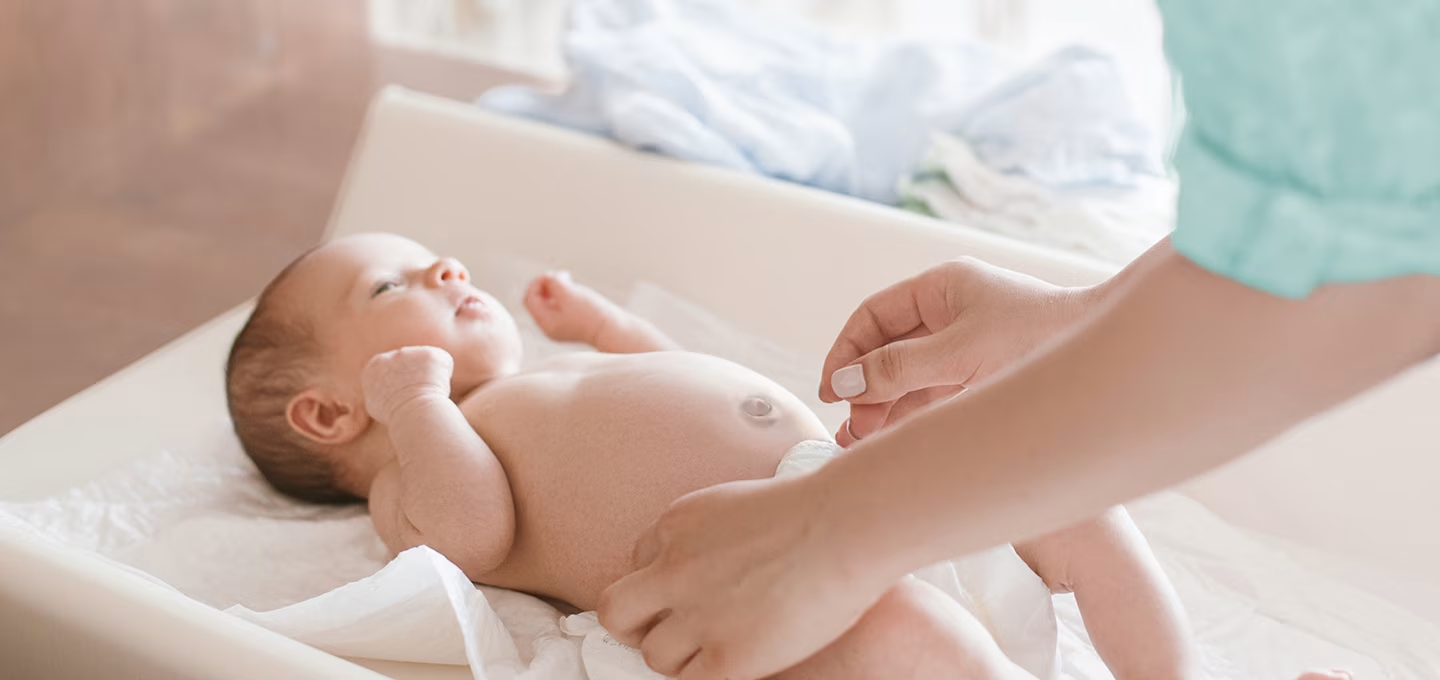
How Many Newborn Diapers Do I Need?


In this article
Preparing for a newborn means planning for a lot of diaper changes—often more than parents expect. From choosing the right diaper size to understanding how many diapers your baby may need each day, having a clear plan can help you feel more confident and prepared before your baby arrives. Since newborns eat frequently and have tiny bladders, diaper use is highest in the first weeks and gradually changes as your baby grows.
This guide breaks down how many diapers newborns typically use per day, week, month, and even throughout the first year. You’ll also learn which diaper sizes fit newborns best, how long each size usually lasts, and practical tips for stocking up and saving on diapers—so you can focus less on logistics and more on caring for your baby.
👶 Key Takeaways: Newborn Diaper Use & Planning Essentials
What Size Diapers Do You Need for a Newborn?
Newborn babies generally use the smallest diaper sizes, of course. It’s important to know that these sizes are organized by weight (not age) and can vary from brand to brand.
Pampers offers three size categories for new arrivals, all based on weight. These include three different sizes for preterm babies and very small infants, as well as size N (newborn) and size 1.
How much babies weigh at birth varies a lot. For babies born between 37 and 40 weeks, birth weight typically ranges from 5 pounds and 8 ounces to 8 pounds and 13 ounces. Therefore, it helps to have both Size N and Size 1 diapers on hand for your newborn’s arrival. Then, once you know the size you’ll need, you can stock up at home and add them to your diaper bag checklist.
Once your little one arrives, use our handy Diaper Size and Weight Chart to make sure their diapers always fit properly.
Tip
Wondering what size diapers to put on your baby registry? The best newborn diaper size depends on your baby’s weight. And since you won’t know your little one’s birth weight until they arrive, it’s a tricky question.
The best choice is to register for Size 1 diapers, as they will be useful in the future, even if your baby needs Size N diapers at birth. You might also consider requesting a pack or two of Size N diapers in addition to Size 1, just to be prepared.
How Many Diapers Does a Newborn Use in a Day?
The answer to the question “How many newborn diapers do I need?” is fairly straightforward. Newborns may use up to 10 diapers per day. Of course, every child is different, and days can vary, so think about it in terms of weeks and plan for close to 70 diapers each week. Basically, you’ll learn how to change a diaper very quickly!
Why so many diapers? Newborns urinate quite frequently, as often as every one to three hours. As for baby poop, there’s no precise number of bowel movements to expect from a newborn. Once they’ve passed their first bowel movement (meconium), some infants poop after every feeding. But that frequency will gradually decrease, and by 3 to 4 weeks old, some babies only poop about once per week. Remember to anticipate the occasional diaper blowout by purchasing the right fit and stocking up!
All this adds up to a lot of diaper changes. To avoid skin irritation and diaper rash, change your baby’s diaper every time it’s wet or soiled. That typically works out to about one change every two to three hours, on average.
How many diapers a day?
Plan for up to 10 diapers per day. That’s about 70 per week. Change the diaper every time it’s wet or soiled to avoid skin irritation.
How Many Diapers per Month?
If you’re planning ahead, you may be wondering, “How many diapers will a newborn use in a month?” Newborns usually need the most frequent diaper changes, since they feed often and have small bladders.
On average, you might go through up to 10 diapers a day, or about 280 diapers per month in the newborn stage. Keep in mind that diaper needs vary from baby to baby and change as your little one grows. As babies mature, they may wet diapers less often—sometimes mainly after feedings—so monthly diaper use usually decreases over time.
Learn more about how often to change newborn diapers.
How Many Diapers in the First Year?
Many parents also want to know how many diapers to expect over the long term. While usage is highest in the early months, it gradually declines as your baby grows.
So, how many diapers does a baby use in a year? In general, a baby may use around 2,500 to 3,000 diapers in the first year. This estimate includes frequent changes during the newborn phase and fewer changes later on. Using a simple diaper usage chart can help you visualize how diaper needs shift throughout the year and plan accordingly.
How Many Diapers Per Day: Chart by Age, Weight, or Size?
It’s tricky to create a diaper chart regarding how many specific diapers you’ll need by age. Remember that diaper size goes by weight and not age. Healthy babies come in a wide range of weights, but below is how babies tend to grow in terms of weight:
Birth to age 6 months. During this age range, your baby may gain about five to seven ounces per week, doubling their birth weight by about 5 months.
From 6 to 12 months. Typically, babies gain three to five ounces a week and triple their birth weight by 1 year.
Here’s a Pampers size guide that offers a rough estimate of how many diapers, in general, you might need at each size and weight.
Not sure which size you’ll need as your baby grows? Take our quiz to help find the best fit for your baby.
How to Save on Diapers
With diapers being a daily essential, you might look for practical ways to manage costs. Learning how to save money on diapers and wipes can make a noticeable difference over time.
Here are a few simple ways to save:
FAQS AT A GLANCE
As babies go through a lot of diapers, you might want to have about 280 newborn diapers for your first month (roughly 3 boxes if you’re buying packs with about 100 diapers). However, as our article mentions, babies do grow and require larger sizes in the first year, so you don’t want to buy too many of the same size at once. Planning month to month is a good strategy.
The Bottom Line
Diaper needs can add up quickly, especially in the first few months, but having a general idea of how many diapers your newborn may use can make planning easier. Remember that these numbers are averages—your baby’s routine, growth, and development will all play a role in how often you’re changing diapers over time.
Planning ahead, choosing the right size, and looking for smart ways to save can help you feel more prepared and confident. And since diapers are a daily essential, don’t forget you can earn Pampers Cash on eligible purchases with the Pampers Rewards app—so every diaper change can come with a little something back for you, too.
- American Academy of Pediatrics. Caring for Your Baby and Young Child: Birth to Age 5, 7th ed. (New York: Bantam Books, 2019).
- Mayo Clinic. Guide to Your Baby’s First Years, 2nd ed. (Rochester, MN: Mayo Clinic Press, 2020).
- KidsHealth: Your Newborn’s Growth
- Mayo Clinic: Infant Growth, What’s Normal?
Read more about Baby
Join a World of Support
through Pregnancy and Parenthood.
TRACK WITH TOOLS
LEARN WITH EXPERTS
GET REWARDED





